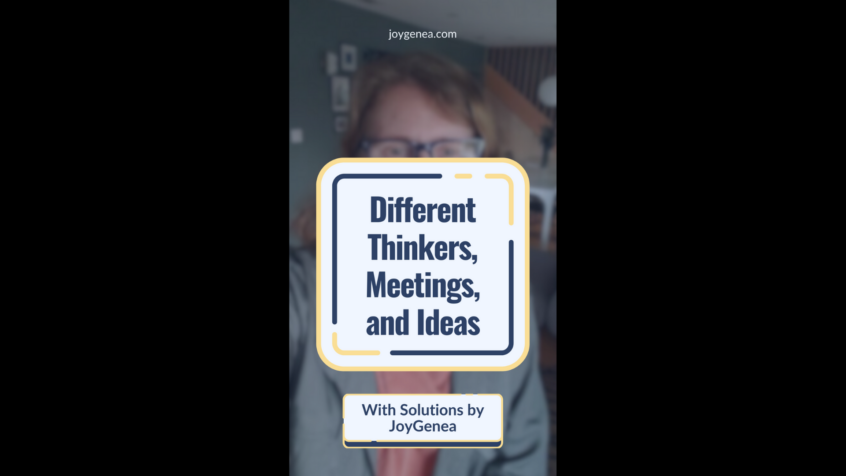Sometimes figuring out the right timing for communicating ideas in meetings can be tricky for different thinkers, but there are strategies to help!
Transcription:
Hi, I’m JoyGenea, international neurodiversity coach for dyslexics and adults with ADHD.
Different thinkers, meetings, and ideas. So, I’m guilty of this all the time, and I’ll own it, but I have learned a way to deal with some of that. If you’re a different thinker, have some dyslexia maybe have a little ADHD and you’re a high verbal processor, not uncommon at all, you need to be conscious of how you engage in meetings and how that might be experienced for everybody else in the meeting, and what I mean by that is it’s really easy to be sitting in a meeting, somebody’s talking and you go ‘Oh my gosh, I have a great idea!’ And then, you could possibly cut them off, that doesn’t typically go well, people don’t always appreciate that, or you all of a sudden, just like you’re raising your hand, you’re dancing in your seat and you’re just like, ‘Oh I’ve got this great idea!’ That’s awesome, I’m going to give you three tips though to not alienate the world, and to share your ideas so they’re actually heard, and they’re possibly implemented and greatly appreciated, which would be nice, because you have good ideas.
So, three simple questions you need to ask yourself, I’ve had to implement this, it’s been very helpful. Will this help with our goal? So, if I’m sitting in a board meeting and I come up with this great idea and I’m like, ‘Wait a minute, will this help with our goal? Also, are there enough benefits to me bringing up this idea. I quickly map out, like what will be the benefits if we do this type of idea? Who will benefit from it? I can map that out pretty fast and figure that out. And the third item is, do I want to be in charge of this idea? I’ve learned that being the idea person means you might be the one in charge of implementing that idea, and if I don’t want to be in charge of that idea or implementing it, I might sit there and not say a darn thing, and you know what, that’s been ok. That doesn’t mean I don’t write down all of my great points because it maybe needs to percolate for a while. Maybe it needs to be thought about a little bit more. I have two or three little bullet points, those types of things, and then I sit on it and I maybe wait, and it might, I might bring it up a little bit later, but in that meeting I’m not going to bring it up, because the last thing I want to do is hijack that meeting and possibly not get the things accomplished that need to get done in that meeting because I had a great idea. I love my great ideas, but sometimes they don’t always belong in with meetings.
I hope this has been helpful for you. I’m JoyGenea, international neurodiversity coach. Bye now.
